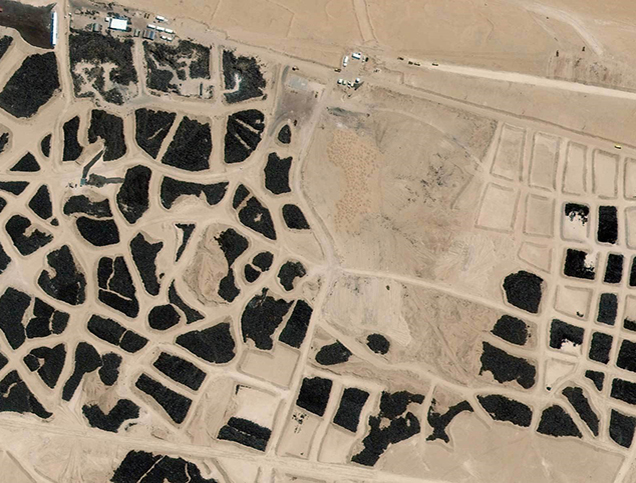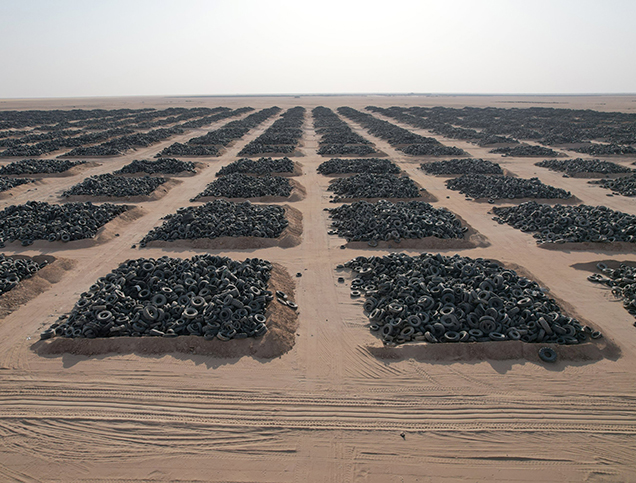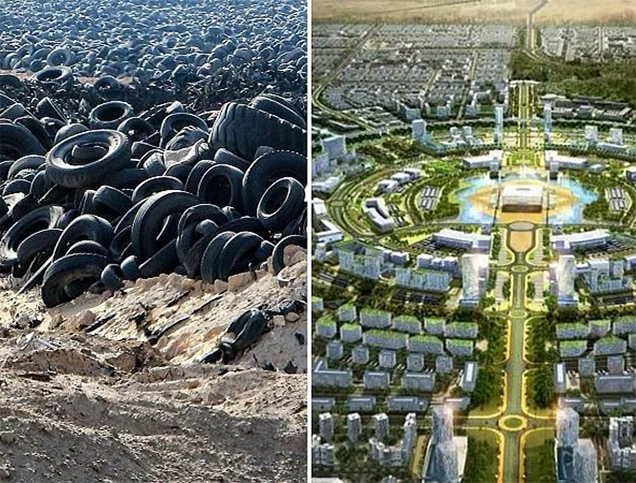
Close

Approach Words: Environment Preservation, Smart City, Sustainability
Public Policy Instruments: Physical Intervention, Planning
The tire graveyard project is a waste management project1 targeting the tire dumping site that has formed a huge rubber landfill2 in the city of Arhayyah3 in Kuwait. This tire dump, located only 7kilometers4 from the residential suburb of Al-Jahra5, caused severe public health and environmental risks to both the environment and public health where fire within the mountains of tires produces noxious fumes6. The severity of the issue became evident as the graveyard site was captured by satellite imagery7.

Title: Aerial view of the tire graveyard at Arhayyah.
Source: Click Here

Title: A picture showing the organization of dividing the landfill into plots.
Source: Click Here

Title: A worker At EPSCO Global General Trading used tires that will go on to be repurposed or recycled at Tire Recycle Plants in Salmi, Kuwait.
Source: Click Here

Title: 3D rendering aerial view of the Kuwait's plan to transform its tire graveyard into a new smart city.
Source: Click Here
In 2017, a national project was approved to relocate more than 42 million8 old vehicle tires to a new recycling site9, subsequently, clearing the land for the development of the ‘Saad Al-Abdullah city’, a 30-year ‘smart city’ project10. The project proposes the establishment of a new recycling facility in the Salmi Area near Kuwait’s industrial area11 that will recycle all the tires and avoid the need for another landfill12.
By September 202113, through a total of 44,000 trips14, the existing graveyard site was cleared and all tires relocated to the multiple recycling facilities15. One of these, the EPSCO recycling plant at Salmi became operational in 2021, with a capacity to recycle 3 million tires per year16. At the plant, the tires were crushed before being compressed into playground flooring and tiles17. The plant also aims to export recycled products to other Gulf and Asian countries18.

Owner/Developer (Public)

Consultant/Designer

Another factory in Salmi, operated by Al Khair group, transported over half of all the tires from Arhayyah by using more than 500 trucks a day19. It planned to recycle the tires through a process known as pyrolysis, which produces a type of oil that can be used for industrial operations20.
The initiative, led by the government of Kuwait, sees involved from multiple public sector agencies, including the Environment Public Authority21, Kuwait Public Authority for Industry22, and General Administration of Customs23. The General Administration of Customs approved the export of 5 million tires in 2021 and led the establishment of 5 factories to facilitate the recycling process prior to export24. To carry out the recycling process itself, a contract was awarded to multiple companies through a competitive process, with EPSCO Global General Trading company emerging as one of the winners25.
Project Link
Endnotes
N.A.
References